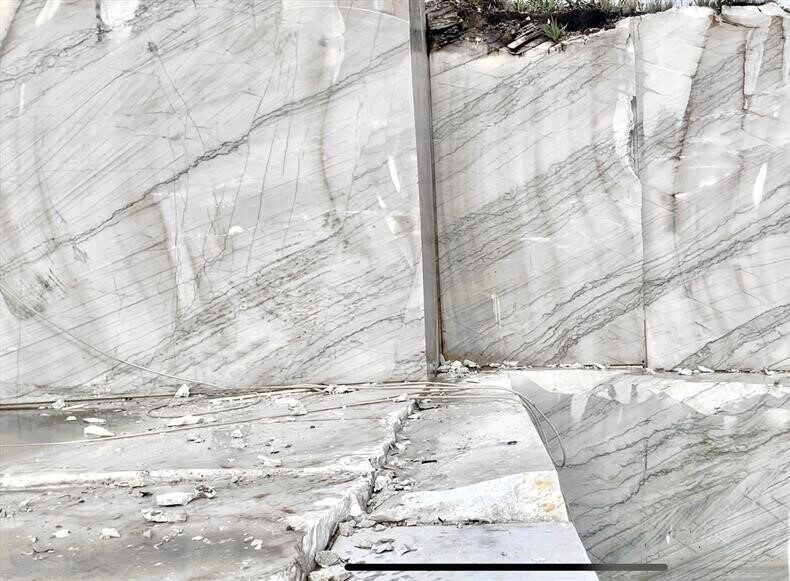Let’s Stop The Confusion: Quartz and Quartzite.

QUARTZITE QUARRY
Quartz and quartzite are often confused due to their similar names, but they are actually quite different materials, especially when it comes to countertops:
-
Composition:
- Quartz: Quartz countertops are man-made surfaces composed of about 90-95% crushed quartz stone mixed with resins, pigments, and other materials. This mixture is then compressed into slabs.
- Quartzite: Quartzite countertops, on the other hand, are natural stone countertops that originate from sandstone. Through natural processes such as heat and pressure, sandstone is transformed into quartzite. It is primarily composed of quartz grains with small amounts of other minerals.
-
Appearance:
- Quartz: Quartz countertops come in a wide range of colors and patterns, often mimicking the look of natural stone like marble or granite. They can have a consistent appearance since they are manufactured.
- Quartzite: Quartzite countertops feature unique patterns and colors created by natural processes. Each slab is distinct, showcasing the natural beauty of the stone with variations in veining, color, and texture.
-
Durability:
- Quartz: Quartz countertops are highly durable and resistant to scratches, stains, and heat. They are non-porous, making them resistant to bacteria and easy to clean.
- Quartzite: Quartzite countertops are also durable but may require sealing to protect against staining since they are a natural stone. They are less prone to scratching and heat damage compared to other natural stones like marble but may require more maintenance.
-
Maintenance:
- Quartz: Quartz countertops are relatively low-maintenance. They do not require sealing and can be cleaned with mild soap and water.
- Quartzite: Quartzite countertops may require periodic sealing to maintain their appearance and protect against stains. Routine cleaning with a stone-safe cleaner is recommended.
-
Cost:
- Quartz: Quartz countertops are generally more affordable compared to quartzite, though prices can vary depending on the brand, color, and quality.
- Quartzite: Quartzite countertops tend to be more expensive due to their natural origin and unique characteristics.
In summary, while both quartz and quartzite countertops offer durability and aesthetic appeal, they differ in composition, appearance, maintenance requirements, and cost. The choice between them often depends on personal preference, budget, and specific needs for the countertop surface.